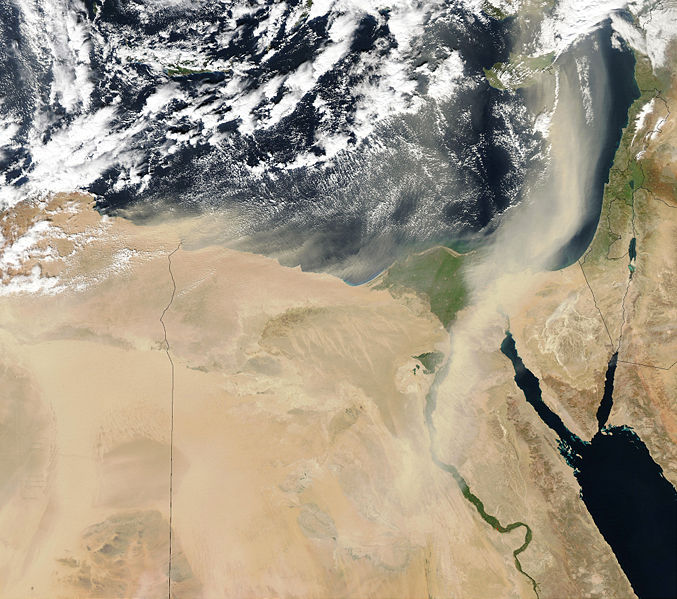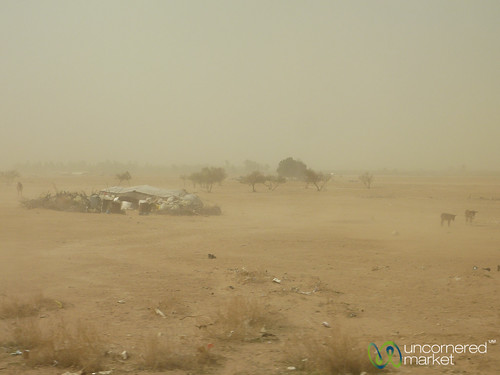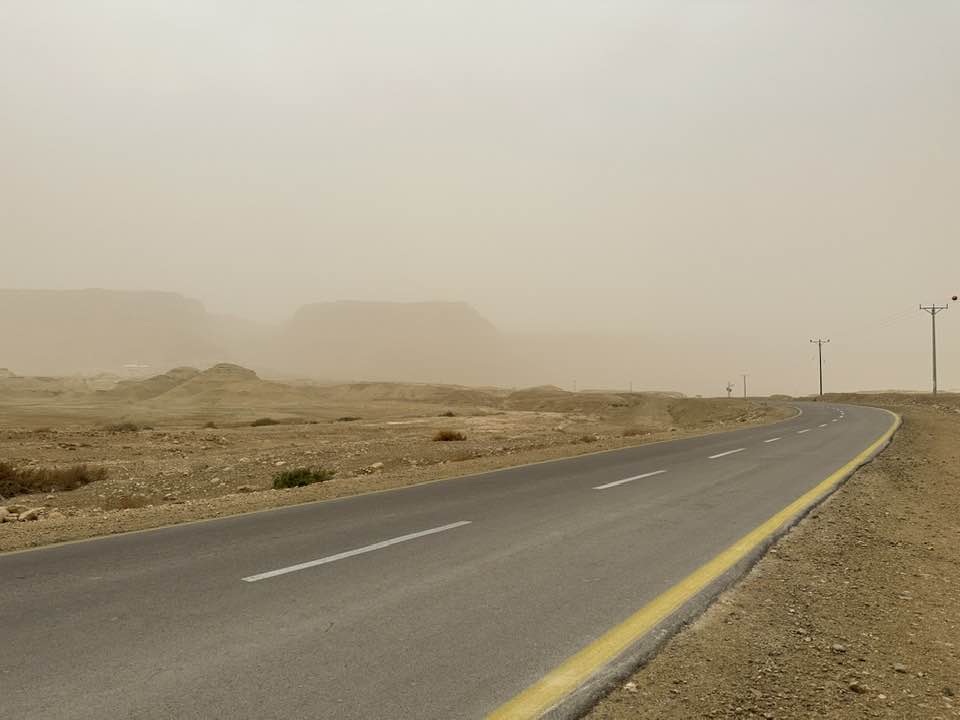
8 - Darkness
by Jefferson Williams
Three of the four canonical gospels report darkness from noon to 3 pm - from the 6th to the 9th hour (of daylight).
Spring time in Judea is known for its frequent dust storms or Khamsins. If the Gospel accounts are accurately describing what appears to be a "day into night" dust storm, it would have left a distinctive deposit. Future research may work on determining if dust storm deposits are present the sediments and, if so, when they were deposited. For example:
Photos of Dust Storms in the Dead Sea
Day into Night Dust Storm Videos
45Now from the sixth hour darkness fell upon all the land until the ninth hour. - Matthew Chapter 27Such darkness could not have been caused by a Solar Eclipse. A Solar Eclipse can only occur during the time of a New Moon which last occurred on 1 Nisan (Nisan is a month in the Jewish calendar). By the time that the crucifixion occurred on 14 or 15 Nisan, the moon was full and could not have gotten between the Earth and the Sun.
33And when the sixth hour was come, there was darkness over the whole land until the ninth hour. - Mark Chapter 15
44And it was about the sixth hour, and there was a darkness over all the earth until the ninth hour. - Luke Chapter 23
Spring time in Judea is known for its frequent dust storms or Khamsins. If the Gospel accounts are accurately describing what appears to be a "day into night" dust storm, it would have left a distinctive deposit. Future research may work on determining if dust storm deposits are present the sediments and, if so, when they were deposited. For example:
- Is there a significant dust storm deposit coincident with the Jerusalem Quake?
- Is there a significant dust storm deposit that struck 2 years after the Jerusalem Quake?
- Are there no significant dust storm deposits between 26 and 36 AD?


